BMW 1 Series vs Mercedes EQA - Differences and prices compared
Compare performance (300 HP vs 292 HP), boot space and price (28800 £ vs 44200 £ ) at a glance. Find out which car is the better choice for you – BMW 1 Series or Mercedes EQA?
Costs and Efficiency:
Price and efficiency are often the first things buyers look at. Here it becomes clear which model has the long-term edge – whether at the pump, the plug, or in purchase price.
BMW 1 Series has a clearly advantage in terms of price – it starts at 28800 £ , while the Mercedes EQA costs 44200 £ . That’s a price difference of around 15437 £.
Engine and Performance:
Power, torque and acceleration are the classic benchmarks for car enthusiasts – and here, some clear differences start to show.
When it comes to engine power, the BMW 1 Series has a minimal edge – offering 300 HP compared to 292 HP. That’s roughly 8 HP more horsepower.
In acceleration from 0 to 100 km/h, the BMW 1 Series is distinct quicker – completing the sprint in 4.90 s, while the Mercedes EQA takes 6 s. That’s about 1.10 s faster.
In terms of top speed, the BMW 1 Series performs noticeable better – reaching 250 km/h, while the Mercedes EQA tops out at 160 km/h. The difference is around 90 km/h.
There’s also a difference in torque: Mercedes EQA pulls noticeable stronger with 520 Nm compared to 400 Nm. That’s about 120 Nm difference.
Space and Everyday Use:
Cabin size, boot volume and payload all play a role in everyday practicality. Here, comfort and flexibility make the difference.
Both vehicles offer seating for 5 people.
In curb weight, BMW 1 Series is evident lighter – 1465 kg compared to 2045 kg. The difference is around 580 kg.
In terms of boot space, the BMW 1 Series offers to a small extent more room – 380 L compared to 340 L. That’s a difference of about 40 L.
In maximum load capacity, the Mercedes EQA performs minimal better – up to 1320 L, which is about 120 L more than the BMW 1 Series.
When it comes to payload, BMW 1 Series to a small extent takes the win – 510 kg compared to 425 kg. That’s a difference of about 85 kg.
Who comes out on top?
Overall, the BMW 1 Series shows itself to be leads convincingly overall and secures the title of DriveDuel Champion.
It convinces with the more balanced overall package and proves to be the more versatile choice for everyday use.
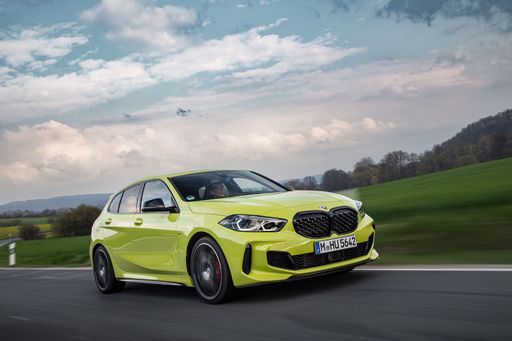
BMW 1 Series
Costs and Consumption
View detailed analysis
Engine and Performance
View detailed analysis
Dimensions and Body
View detailed analysis
BMW 1 Series
The BMW 1 Series is a compact premium hatchback that injects a proper sense of driving fun into everyday life, with sharp handling and a cabin that punches above its class. It’s a great pick for buyers who want sporty manners without losing practicality, and yes, you’ll still get that unmistakable BMW grin behind the wheel.
details
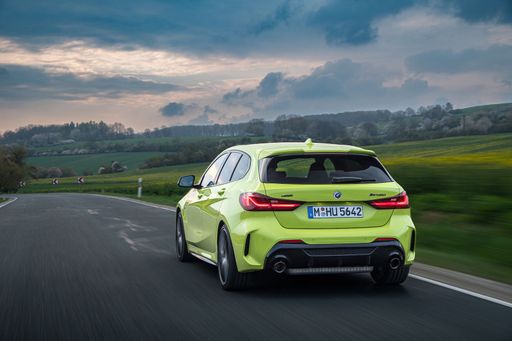
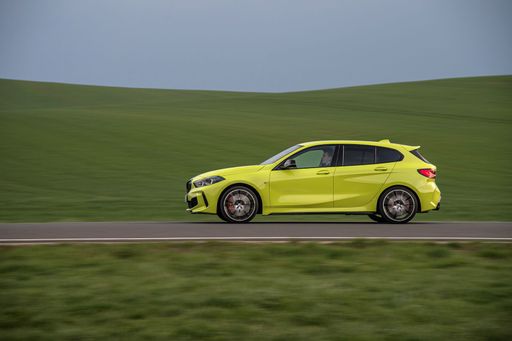
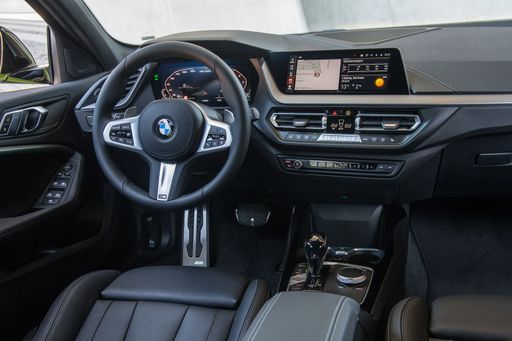
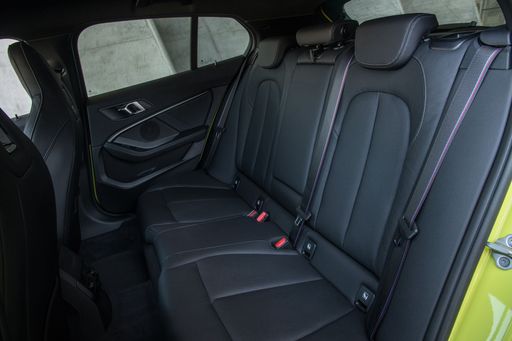
Mercedes EQA
The Mercedes EQA slips into the electric crossover ranks with the brand’s familiar luxury polish, offering a quiet, fuss-free drive that feels perfectly at home in the city or on a country escape. Inside it’s neatly finished and tech-forward, projecting grown-up refinement even if it plays things a bit safe for anyone chasing outright excitement.
details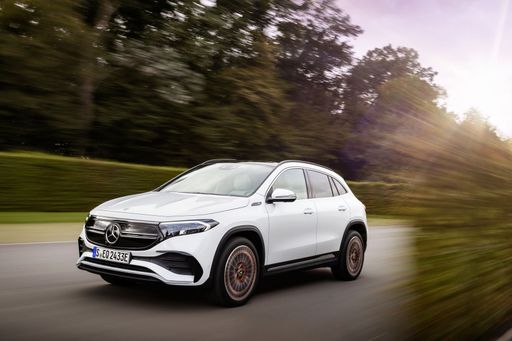
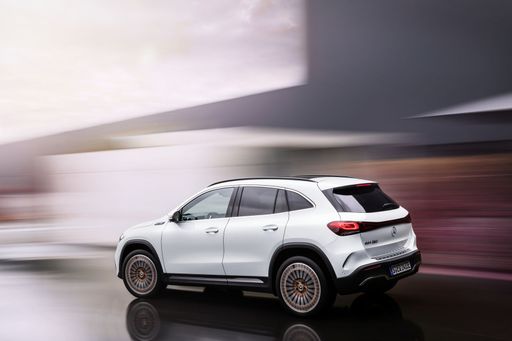
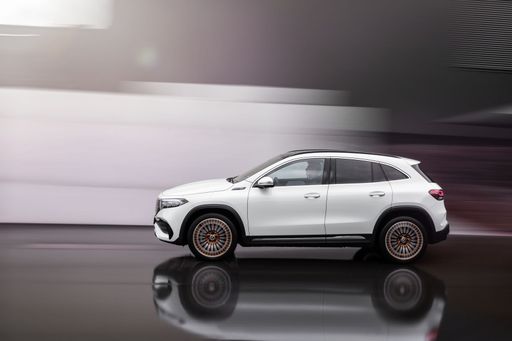
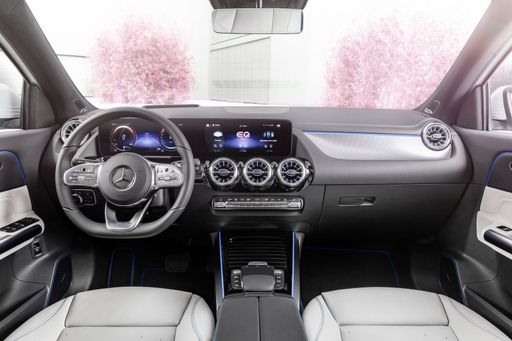
Costs and Consumption |
|
|---|---|
|
Price
28800 - 51100 £
|
Price
44200 - 57400 £
|
|
Consumption L/100km
4.3 - 7.6 L
|
Consumption L/100km
-
|
|
Consumption kWh/100km
-
|
Consumption kWh/100km
14.4 - 16.9 kWh
|
|
Electric Range
-
|
Electric Range
476 - 561 km
|
|
Battery Capacity
-
|
Battery Capacity
70.50 kWh
|
|
co2
112 - 173 g/km
|
co2
0 g/km
|
|
Fuel tank capacity
49 L
|
Fuel tank capacity
-
|
Dimensions and Body |
|
|---|---|
|
Body Type
Hatchback
|
Body Type
SUV
|
|
Seats
5
|
Seats
5
|
|
Doors
5
|
Doors
5
|
|
Curb weight
1465 - 1625 kg
|
Curb weight
2045 - 2115 kg
|
|
Trunk capacity
300 - 380 L
|
Trunk capacity
340 L
|
|
Length
4361 mm
|
Length
4463 mm
|
|
Width
1800 mm
|
Width
1834 mm
|
|
Height
1459 mm
|
Height
1608 - 1613 mm
|
|
Max trunk capacity
1135 - 1200 L
|
Max trunk capacity
1320 L
|
|
Payload
475 - 510 kg
|
Payload
425 kg
|
Engine and Performance |
|
|---|---|
|
Engine Type
Diesel, Petrol MHEV, Diesel MHEV, Petrol
|
Engine Type
Electric
|
|
Transmission
Automatic
|
Transmission
Automatic
|
|
Transmission Detail
Dual-Clutch Automatic
|
Transmission Detail
Reduction Gearbox
|
|
Drive Type
Front-Wheel Drive, All-Wheel Drive
|
Drive Type
Front-Wheel Drive, All-Wheel Drive
|
|
Power HP
122 - 300 HP
|
Power HP
190 - 292 HP
|
|
Acceleration 0-100km/h
4.9 - 9.8 s
|
Acceleration 0-100km/h
6 - 8.6 s
|
|
Max Speed
210 - 250 km/h
|
Max Speed
160 km/h
|
|
Torque
230 - 400 Nm
|
Torque
385 - 520 Nm
|
|
Number of Cylinders
3 - 4
|
Number of Cylinders
-
|
|
Power kW
90 - 221 kW
|
Power kW
140 - 215 kW
|
|
Engine capacity
1499 - 1998 cm3
|
Engine capacity
-
|
General |
|
|---|---|
|
Model Year
2024
|
Model Year
2024 - 2025
|
|
CO2 Efficiency Class
D, C, F
|
CO2 Efficiency Class
A
|
|
Brand
BMW
|
Brand
Mercedes-Benz
|
What drive types are available for the BMW 1 Series?
The BMW 1 Series is offered with Front-Wheel Drive or All-Wheel Drive.




